Imagine a scenario where you visit a website eagerly searching for information or a product, only to be met with a convoluted navigation system, slow loading speeds, and an overall frustrating user experience. Frustrating, right?
At Adam Fard Studio, we've seen firsthand the transformative power of usability audits in crafting unparalleled user experiences. Let's dive deeper into how we approach usability audits and why they're a game-changer for any digital platform.
Understanding Usability Audits
User experience plays a pivotal role in the success of any digital platform. A usability audit is an evaluation process that aims to identify usability issues and enhance the overall user experience.
It involves a comprehensive analysis of various aspects, including app design, navigation, content, functionality, and performance.
The Importance of Usability Audits
Building Trust and Credibility
A well-designed website that prioritizes user experience creates trust and credibility among your audience. By conducting a usability audit, you can identify and rectify any roadblocks that hinder a smooth user journey, ensuring your visitors feel confident in engaging with your brand.
Boosting Conversion Rates
A seamless user experience directly correlates with higher conversion rates. By optimizing your website through a usability audit, you remove obstacles that hinder conversions, resulting in increased engagement, sales, and customer satisfaction.
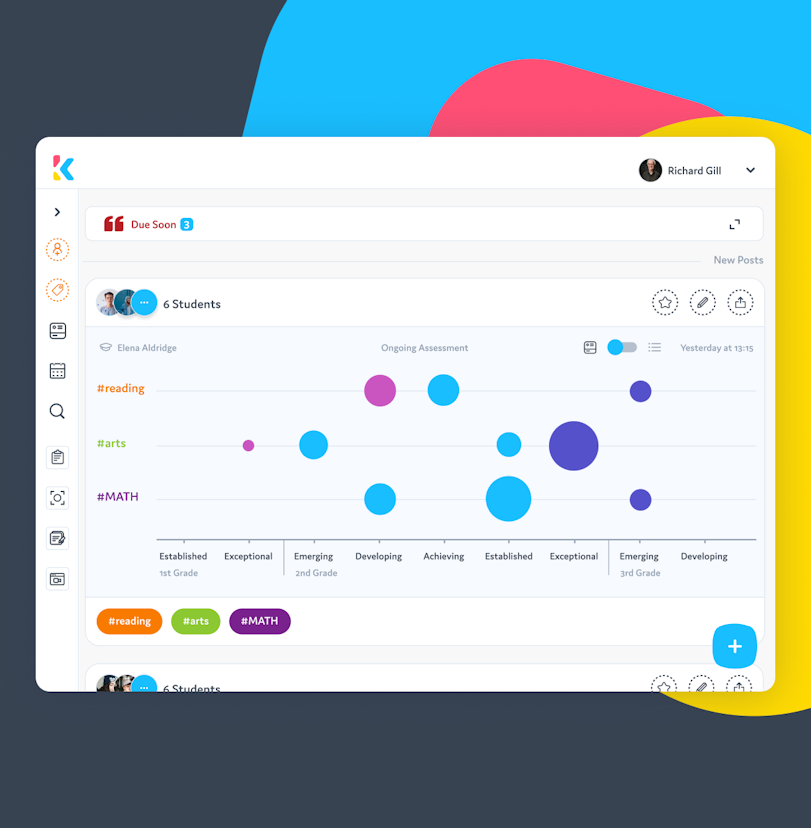
We helped our client increase conversion by 78%.
We've revamped our client's app to skyrocket usability metrics.
Learn moreGaining a Competitive Edge
In today's digital landscape, competition is fierce. A usability audit can provide valuable insights into your competitors' strengths and weaknesses, helping you differentiate your brand by offering an exceptional user experience.
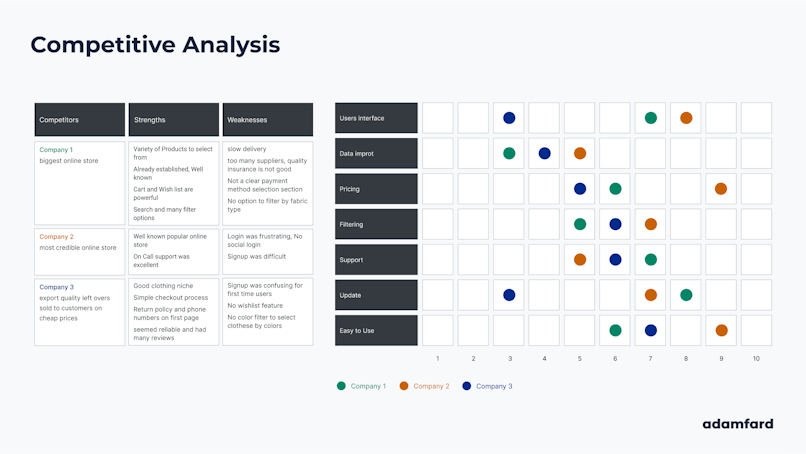
An example of competitive analysis we do at Adam Fard Studio
By understanding your users' needs and preferences better, you can deliver a superior digital experience that sets you apart from the competition.
Conducting a Usability Audit
Define Your Objectives
Begin by setting clear objectives for your usability audit. Determine what you want to achieve through the audit process.
Whether it's improving conversion rates, reducing bounce rates, or enhancing overall user satisfaction, defining your goals will provide direction and focus.
Analyze User Behavior
To truly understand your users' needs and pain points, analyze their behavior on your website. Leverage analytics tools to gain insights into user flow, click-through rates, bounce rates, and conversion funnels.
This data will help you identify areas that require improvement and guide your decision-making process.
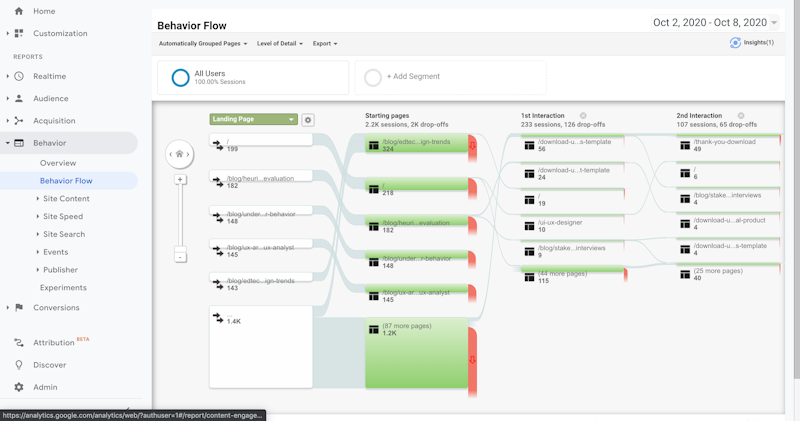
Evaluate User Interface and Navigation
The user interface and navigation play a crucial role in determining how easily users can access and interact with your website. Assess the clarity of your navigation menus, the placement of important elements, and the overall visual hierarchy.
Aim for a clean, intuitive design that guides users seamlessly through their journey. The go-to system for evaluating usability is Nielsen's 10 usability heuristics.
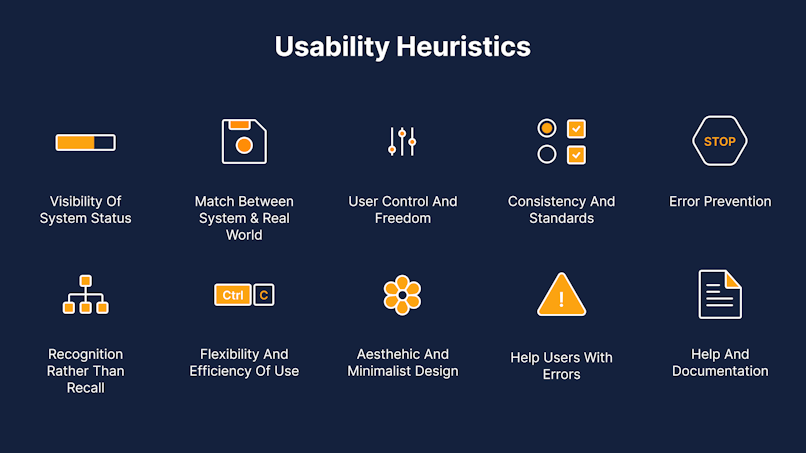
Optimize Content
Content is king, and it significantly impacts user engagement. Evaluate your website's content quality, relevance, and readability. Ensure that your copy is concise, scannable, and free of jargon. These practices are often referred to as UX writing.
Use headings, subheadings, and bullet points to break down information into digestible chunks, enhancing readability and comprehension.
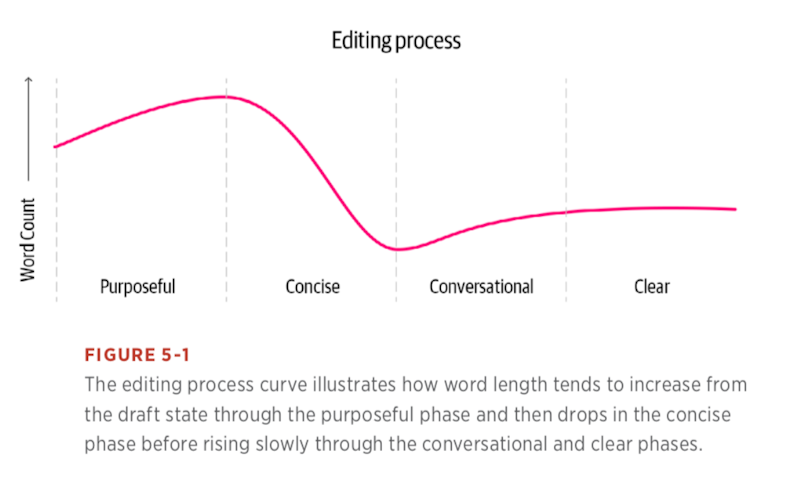
A process of writing UX copy | Source: Strategic Writing for UX: Drive Engagement, Conversion, and Retention with Every Word by Torrey Podmajersky
Test Performance and Load Times
Slow-loading websites lead to high bounce rates and frustrated users. Test your website's performance and optimize load times by compressing images, minimizing HTTP requests, and leveraging caching techniques. A fast and responsive website is crucial for a positive user experience.
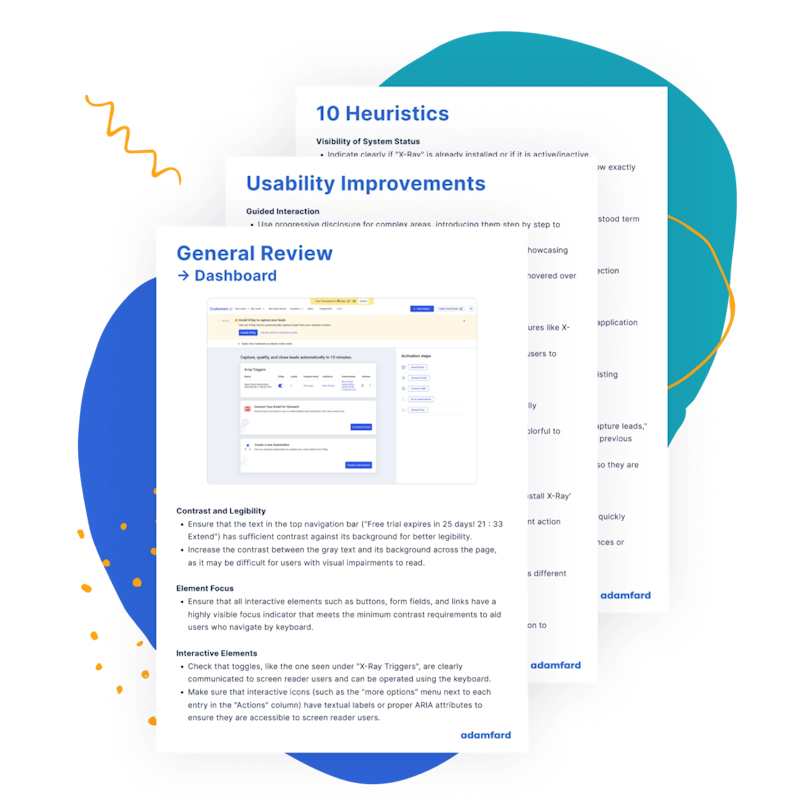
Get an express UX Audit. Done in 24 hours.
Submit designs. Get a review the next day. It's that simple.
Try nowGather User Feedback
Incorporating user feedback is essential for continuous improvement. Conduct surveys, usability testing, and gather feedback through social media channels to gain valuable insights directly from your target audience. Their input will help you identify pain points and prioritize improvements.
Implementing Usability Audit Findings
After completing the usability audit, it's time to implement the identified improvements. Create an action plan, prioritize changes based on their impact and feasibility, and allocate resources accordingly.
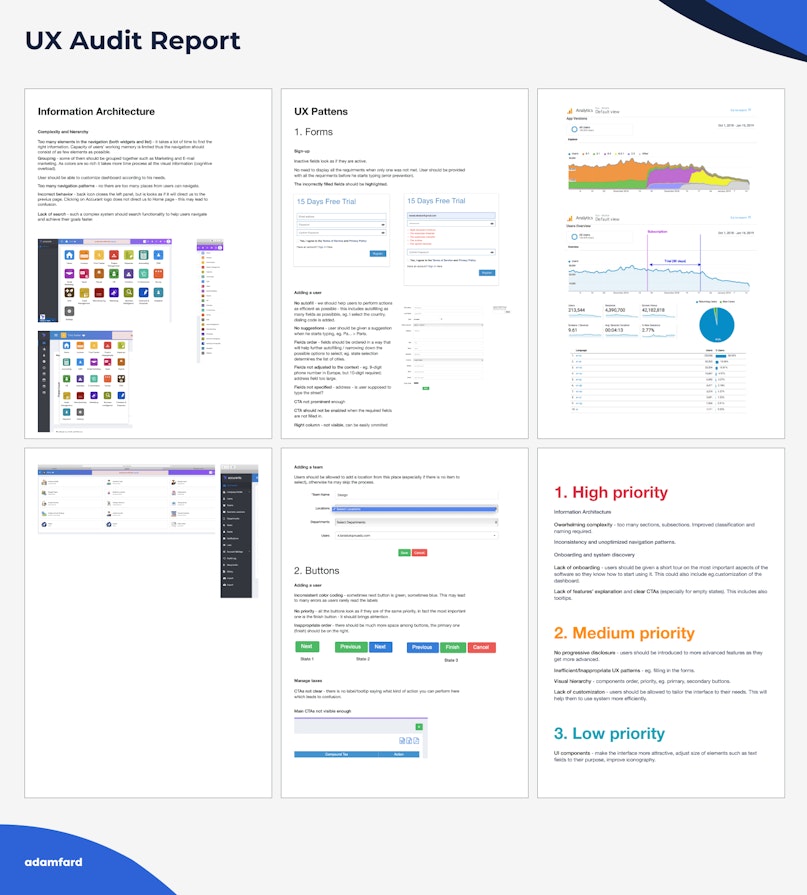
Here's an example of a report we do.
Involve your development team in the process to ensure smooth execution and successful implementation of the recommended changes.
Monitoring and Iteration
A usability audit is not a one-time activity; it's an ongoing process. Monitor the impact of the implemented changes, track key performance indicators, and gather user feedback to gauge their effectiveness. Continuously iterate and refine your website to keep up with evolving user needs and industry trends.
Conclusion
In today's digital landscape, delivering exceptional user experiences is paramount for businesses seeking growth and success. Conducting a usability audit allows you to uncover hidden barriers, optimize user journeys, and create engaging digital experiences that resonate with your audience.
By following the practical steps outlined in this article, you can unlock the true potential of your website, gain a competitive edge, and foster long-term customer loyalty. Remember, a user-centered approach is a key to unlocking your digital growth, and a usability audit is a compass that guides you on this transformative journey.





